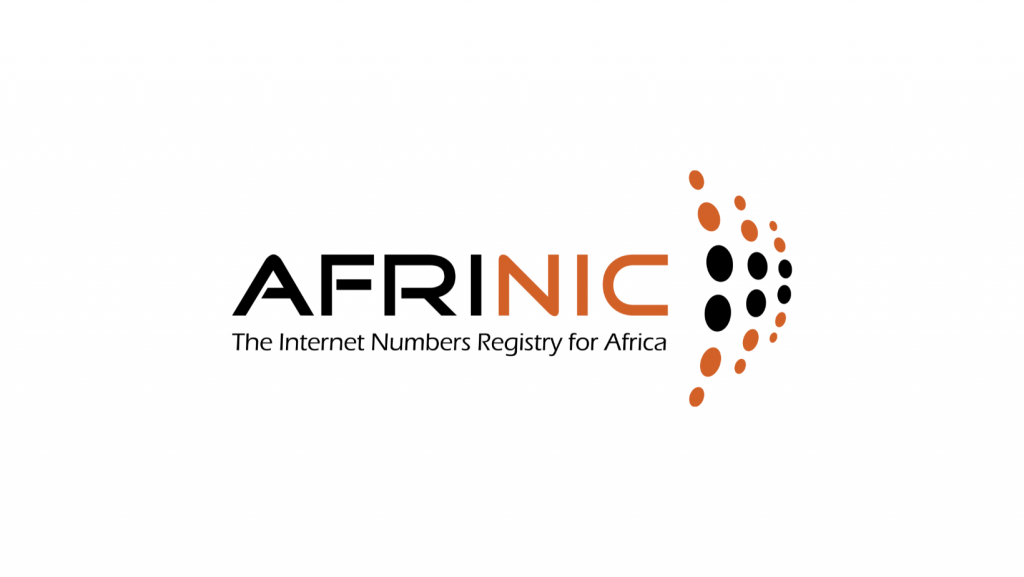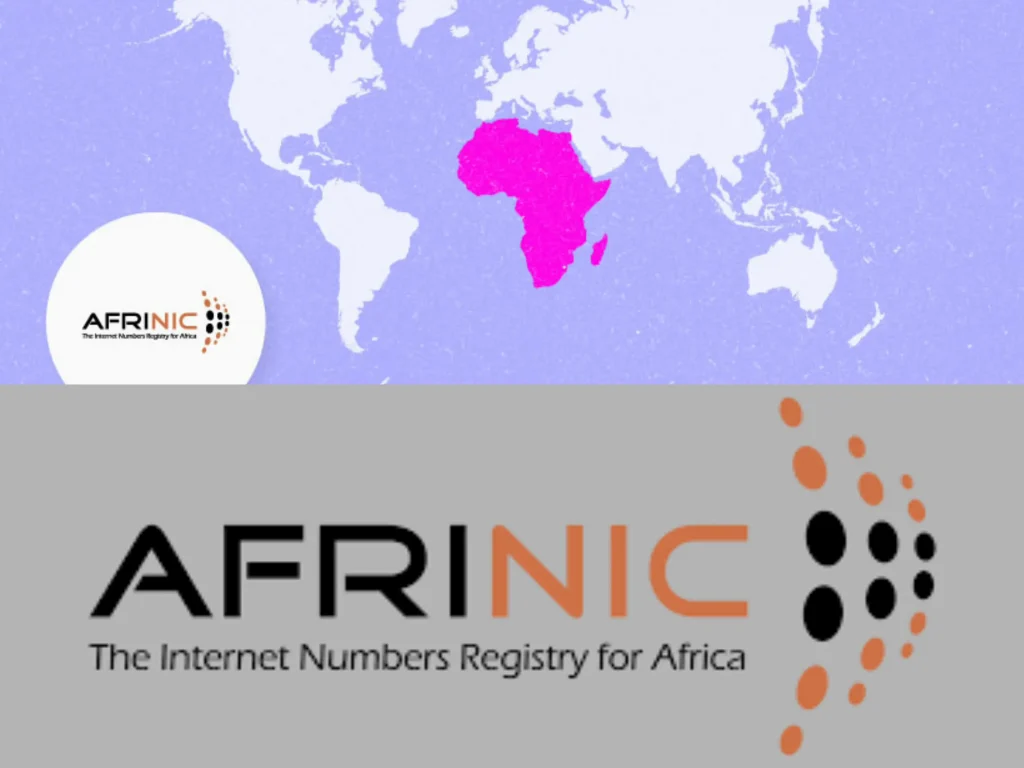- AFRINIC is the African Network Information Centre, responsible for managing the allocation and distribution of IP addresses, Autonomous System Numbers (ASNs), and related resources across Africa, ensuring the continent’s digital infrastructure supports growing demand for internet services.
- The organization plays a key role in Africa’s digital economy by promoting IPv6 adoption, supporting policy development, providing training, and advocating for sustainable internet governance to help bridge the digital divide and foster local content creation.
In today’s interconnected world, the management of internet resources, such as IP addresses and domain names, is crucial for ensuring smooth and efficient digital operations. One organization that plays a vital role in this process across Africa is AFRINIC — the African Network Information Centre. As the Regional Internet Registry (RIR) for the African continent, AFRINIC is responsible for the allocation, management, and distribution of IP addresses and other related resources within Africa.
- Understanding AFRINIC: The African internet authority
- The importance of AFRINIC for Africa’s digital future
- Key functions of AFRINIC
- How AFRINIC supports Africa’s digital ecosystem
- AFRINIC’s role in internet governance
- AFRINIC’s impact on the African digital economy
- AFRINIC faces governance, legal, and operational challenges
- The vital role of AFRINIC in Africa’s digital transformation and internet governance
- FAQs: What is AFRINIC?
Also read: Supreme Court ruling on AFRINIC: New members no rights, elections by June 2025
Also read: AFRINIC IPv6 allocations: Is African internet finally stabilising?
Understanding AFRINIC: The African internet authority
AFRINIC stands for African Network Information Centre. It is the designated Regional Internet Registry (RIR) responsible for the distribution and management of internet number resources in Africa, including IP addresses, Autonomous System Numbers (ASNs), and reverse DNS services. AFRINIC was founded in 2005 and is based in Mauritius, though it serves the entire African continent.
As an RIR, AFRINIC operates under the principles and guidelines set forth by the global internet governance bodies such as the Internet Corporation for Assigned Names and Numbers (ICANN) and the Internet Assigned Numbers Authority (IANA). AFRINIC’s role is part of a larger system of five Regional Internet Registries globally, each tasked with managing and distributing IP addresses for different geographical regions. The other four RIRs are ARIN (North America), RIPE NCC (Europe, the Middle East, and parts of Central Asia), APNIC (Asia-Pacific), and LACNIC (Latin America and the Caribbean).
Also read: ICANN approves .COM agreement renewal with Verisign

The importance of AFRINIC for Africa’s digital future
AFRINIC’s role is more crucial than ever as Africa’s internet penetration continues to increase. According to recent reports, internet penetration in Africa has been growing rapidly, with the continent expected to have over 500 million internet users by 2025. This rapid expansion makes it critical for AFRINIC to manage the allocation of IP addresses efficiently, ensuring that Africa’s digital infrastructure can keep up with the demand.
- Ensuring Internet Resource Allocation: AFRINIC is responsible for ensuring that African Internet Service Providers (ISPs), businesses, and organizations have access to the necessary IP resources to maintain their networks. It helps organizations secure their own blocks of IP addresses, which are essential for communication over the internet.
- Supporting IPv6 Transition: As the world moves toward IPv6 due to the exhaustion of IPv4 addresses, AFRINIC plays a key role in promoting the adoption of IPv6 across Africa. IPv6, with its much larger address space, is essential for accommodating the increasing number of devices connected to the internet.
- Fostering Regional Development: AFRINIC helps drive the development of Africa’s digital economy by ensuring that the region has the resources and infrastructure it needs to grow. This includes providing training, resources, and support to local organizations, policymakers, and stakeholders.
Also read: What is AFRINIC? The role and challenges of the African Regional Internet Registry

Key functions of AFRINIC
To better understand the scope of AFRINIC’s activities, it’s essential to look at its core functions:
1. IP Address Allocation and Management
One of the primary functions of AFRINIC is to allocate IP address blocks to internet service providers, data centers, cloud services, and other organizations operating within Africa. An IP address is a unique identifier assigned to each device or network connected to the internet. AFRINIC is responsible for managing and distributing both IPv4 and IPv6addresses across the African continent.
IPv4 addresses, which have been in use for decades, are now limited and nearly exhausted. As a result, AFRINIC is heavily involved in the IPv6 transition, which will provide a much larger pool of addresses to accommodate future growth in internet-connected devices across Africa.
2. Autonomous System Number (ASN) Allocation
AFRINIC also allocates Autonomous System Numbers (ASNs) to organizations that operate independent networks. These numbers are critical for routing traffic efficiently across the internet and ensuring that data is sent to the correct destinations. ASNs are essential for Internet Service Providers (ISPs), telecommunications companies, and other large network operators.
AFRINIC is central to Africa’s digital transformation, providing the infrastructure and resources needed to ensure sustainable internet growth and connect the continent to the global digital economy.
Paul Wilson, former AFRINIC CEO
3. DNS and Reverse DNS Services
AFRINIC provides reverse DNS services, which are essential for resolving IP addresses back to their associated domain names. This service is crucial for ensuring smooth and efficient internet operations, allowing users and applications to resolve domain names into IP addresses quickly and accurately.
4. Policy Development and Community Engagement
AFRINIC plays a significant role in the development of policies related to the management of IP addresses and internet governance in Africa. The organization works closely with stakeholders from across the continent to develop policies that align with both global standards and the unique needs of African countries. Through its Policy Development Process (PDP), AFRINIC enables the African community to participate in discussions and decision-making processes related to internet resource management. The AFRINIC community includes ISPs, network engineers, governments, and other stakeholders, all of whom have a vested interest in the responsible and efficient management of Africa’s internet resources.
Also read: LACNIC publishes RFC 9660 to enhance IP address management
Also read: How changing IP addresses impacts web performance and security

How AFRINIC supports Africa’s digital ecosystem
The importance of AFRINIC goes beyond just managing IP addresses. It plays an essential role in shaping Africa’s digital infrastructure and fostering a more connected and technologically advanced continent. Here’s how AFRINIC is supporting Africa’s digital ecosystem:
1. Bridging the Digital Divide
AFRINIC is actively working to bridge the digital divide in Africa by ensuring that underserved regions have access to the internet resources they need. This includes working with local governments, ISPs, and other organizations to extend internet coverage to rural and remote areas, where access to technology can often be limited.
2. Encouraging Local Content Development
By ensuring that Africa has a robust and growing digital infrastructure, AFRINIC supports the development of local content and services. This is critical for driving economic growth, education, and innovation within Africa. When businesses and organizations have reliable access to the internet, they are more able to create and distribute content that meets the needs of local populations.
3. Supporting Capacity Building and Training
AFRINIC provides training and education programs to help build technical expertise in the region. By offering workshops, conferences, and online resources, AFRINIC helps to upskill network engineers, policymakers, and other key stakeholders in the effective management of IP resources, ensuring that African organizations can meet the demands of the digital age.
4. Advocating for Sustainable Internet Governance
AFRINIC advocates for sustainable internet governance practices, aligning Africa’s digital infrastructure development with global standards. By working with international bodies like ICANN and the Internet Society, AFRINIC ensures that African nations actively participate in global discussions on internet policy, standards, and security.
Also read: AFRINIC ELECTIONS TO BE HELD WITHIN SIX MONTHS

AFRINIC’s role in internet governance
Internet governance refers to the processes, rules, and regulations that ensure the global internet operates smoothly, securely, and in an inclusive manner. As the RIR for Africa, AFRINIC is deeply involved in the global governance structure. Through its collaborations with ICANN, IANA, and other RIRs, AFRINIC contributes to the development of global standards and policies related to IP address allocation, internet security, and other aspects of internet infrastructure.
AFRINIC actively engages with national governments and regional organizations to represent African interests in global internet governance discussions. By participating in global dialogues and policy-making processes, AFRINIC helps ensure that Africa’s internet ecosystem remains resilient and adaptable to future challenges.
Also read: ICANN’s Africa DNS report barely mentions the AFRINIC problem
AFRINIC’s impact on the African digital economy
The work AFRINIC does has a profound impact on Africa’s digital economy. As more businesses, governments, and individuals rely on digital technologies, AFRINIC plays a key role in supporting the infrastructure that drives economic growth and innovation. The effective management of internet resources ensures that Africa’s digital ecosystem is ready for the future.
By enabling access to critical internet resources, supporting policy development, and advocating for inclusive internet governance, AFRINIC is helping to shape a future where Africa can fully participate in the global digital economy.
As Africa continues to grow digitally, AFRINIC’s role in managing internet resources and promoting policies for inclusivity and innovation is crucial for the continent’s future.
Adam Dince, Internet Governance Expert
AFRINIC faces governance, legal, and operational challenges
Africa is facing significant challenges related to governance, legal issues, and its role in managing internet resources across the African continent.
- Governance and Leadership Crisis: AFRINIC has been experiencing internal conflicts and leadership disputes, which have led to a lack of clear direction and inefficiencies in decision-making. These issues have impacted the organization’s ability to effectively carry out its mission of managing IP address allocation and related resources in Africa.
- Legal and Financial Struggles: AFRINIC has also been embroiled in legal battles, including a high-profile case with the global internet registry, as well as financial difficulties. These legal disputes have led to a freeze on certain IP address allocations, causing disruptions to network operations across Africa.
- Operational Challenges: These internal and external issues have created challenges in maintaining smooth operations, such as efficiently allocating internet resources, serving Africa’s growing demand for connectivity, and ensuring the region is properly represented in global internet governance discussions.
- Loss of Trust and Credibility: The ongoing governance and legal challenges have eroded trust among AFRINIC’s stakeholders, including internet service providers, network operators, and governments in Africa. This has undermined AFRINIC’s credibility as a reliable and neutral institution for managing the continent’s internet resources.
The vital role of AFRINIC in Africa’s digital transformation and internet governance
AFRINIC (African Network Information Centre) is a cornerstone organization in Africa’s digital ecosystem, playing a pivotal role in managing essential internet resources and supporting the growth of the continent’s burgeoning digital economy. As the designated Regional Internet Registry (RIR) for Africa, AFRINIC is responsible for the distribution of critical IP addresses, Autonomous System Numbers (ASNs), and other internet resources to Internet Service Providers (ISPs), data centers, and organizations across the continent.
In addition to managing IP resources, AFRINIC is instrumental in promoting IPv6 adoption, a necessary step as the world moves toward more sustainable and scalable internet infrastructure. With the rapid increase in connected devices across Africa, the adoption of IPv6 is crucial to accommodating future growth and ensuring that Africa is not left behind in the global digital revolution.
As Africa’s digital landscape evolves, AFRINIC’s role will become even more critical. By providing the necessary infrastructure, resources, and policy frameworks, AFRINIC is helping to shape the future of the internet in Africa—ensuring that the continent remains competitive in the global digital economy. Moreover, AFRINIC’s continued efforts will foster greater digital inclusion, support sustainable development, and help bridge the digital divide by enabling wider access to affordable and reliable internet services across Africa.

FAQs: What is AFRINIC?
AFRINIC (African Network Information Centre) is the Regional Internet Registry (RIR) for Africa. It is responsible for the management, allocation, and distribution of IP addresses, Autonomous System Numbers (ASNs), and related resources across the African continent. Additionally, AFRINIC plays a key role in promoting IPv6 adoption, supporting internet governance, and fostering the growth of Africa’s digital economy.
AFRINIC is essential for ensuring that Africa has the necessary digital infrastructure to support its rapidly growing internet economy. It manages the allocation of IP resources to ISPs, businesses, and organizations, ensuring they have access to the addresses required to operate effectively. AFRINIC also plays a critical role in bridging the digital divide and supporting the sustainable growth of internet infrastructure in Africa.
AFRINIC is actively involved in promoting the transition from IPv4 to IPv6, the next-generation internet protocol. Given that IPv4 addresses are limited and running out, IPv6 is essential for accommodating the increasing number of devices connected to the internet. AFRINIC supports this transition by educating stakeholders, providing resources, and allocating IPv6 addresses to organizations across Africa.
AFRINIC contributes to internet governance by participating in global policy discussions and advocating for Africa’s interests in forums like ICANN (Internet Corporation for Assigned Names and Numbers) and IANA (Internet Assigned Numbers Authority). The organization helps shape internet policies that affect Africa’s digital infrastructure and ensures that the continent’s needs are considered in global governance processes.
AFRINIC’s resources, including IP addresses and ASNs, are available to organizations operating in Africa, including Internet Service Providers (ISPs), telecommunications companies, data centers, and large enterprises. AFRINIC provides these resources through a membership system, where members can apply for IP addresses, ASNs, and other services to support their network operations.

